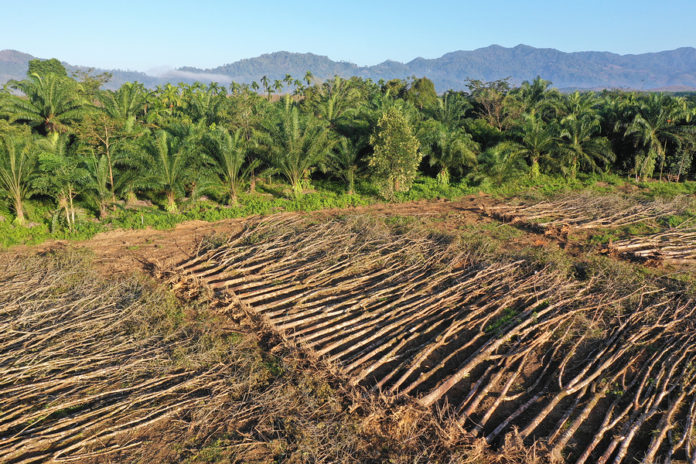
Environmental sustainability is a hot-button issue right now, and food companies are taking action. But how well are they doing in their efforts to protect against deforestation? According to a recent report from Greenpeace, not so great. The report claims that none of the companies assessed (Danone, General Mills, KraftHeinz, Nestle, among others) were able “to demonstrate deforestation-free supply chains.”
Deforestation: The big picture
Greenpeace claims that agricultural production causes about 80% of global deforestation. Further, the organization says that animal agriculture is responsible for about 60% of direct global greenhouse gas (GHG) emissions from agriculture.
To combat the issue, in 2010, members of the Consumer Goods Forum (CGF) promised to work towards eliminating deforestation by 2020. The idea is to responsibly source commodities commonly linked to deforestation:
- Cattle
- Palm oil
- Soya
- Cocoa
According to the report, nearly a decade later, not much has changed. In fact, 50 million hectares of forest will likely have been destroyed for global commodity production from 2010-2020.
Cargill’s Chief Sustainability Officer, Ruth Kimmelshue admits, “Despite our collective efforts, our industry will fall short of a 2020 goal to eliminate deforestation.”
A lack of effort or a lack of transparency?
Greenpeace’s grading system is based on companies’ willingness to disclose their suppliers. According to the organization, “the majority of the companies contacted by Greenpeace failed to provide this information, hiding behind claims of commercial confidentiality.”
That raises the question of whether companies really aren’t sourcing sustainably or they just didn’t want to share that information with Greenpeace.
In response to the report, Ignacio Gavilan, the Environmental Sustainability director at CGF, said that the group has been working towards securing sustainable sources across the food supply chain. Efforts include:
- Sharing best practices between CGF members regarding sustainable and transparent sourcing
- Strengthening and aligning requirements of third-party certifications, including the Roundtable on Sustainable Palm Oil
- Co-founding the Tropical Forest Alliance 2020 with the U.S. Government
- Collaborating with other industries that can influence deforestation
He noted that “CGF’s members have moved substantially closer to our goal of 100% sustainable sourcing” of the target commodity groups, but also that “the forces driving deforestation are more complex than almost any stakeholder realized in 2010.” Specifically, “we now believe that sourcing certified sustainable commodities is, on its own, not sufficient to eliminate deforestation.”
Of course, eliminating deforestation is only one aspect of environmental sustainability. Many food companies are taking a much more multifaceted approach to this complex problem.
Related reading:







